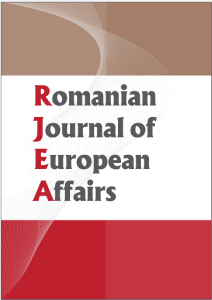What to Reform in the European Budget? Some Reflections on the Stakes of the Current Budget Review Process
Dragos Negrescu
Abstract:
The EU budget is the financial tool supporting European integration. The way it has developed over decades, both as concerns revenues and expenditure, superposed to a complex decision-making process, where member states retain veto rights in crucial respects, means that it currently displays a significant inertia, while its size and structure are not the most appropriate for endowing the Union with the means allowing it to best react to the present-day challenges. Tensions are also rising between the national interests of individual members and the common interest, which previous attempts to reconcile by way of special treatments granted to some countries are clearly unsustainable, while inducing additional rigidities to the budgetary construction. This obviates the need for a comprehensive reform, which the 2008/2009 budget review that the Commission was mandated to undertake may set in motion. The following paper attempts at taking stock of the most significant problems in need of a solution and to explore the most appropriate ways available for tackling them.
Keywords: EMU, EU budget, European tax, VAT
Managing Diversity for a Growing Europe: a Romanian View on the EU Budgetary Review Process
Daniel Daianu, Catalin Pauna, Alina-Stefania Ujupan, Liviu Voinea
Abstract:
Facing major external and internal challenges (climate change, redistribution of power in the world economy, increased EU complexity following the Eastern enlargement etc), the European Union needs to overhaul its budget, observing some basic principles such as: solidarity, interdependence of policies, necessity to redesign the national budgets as well, all under the legal framework of the Lisbon Treaty. There is still considerable scope for improving the implementation of the Cohesion Policy, as one of the most important EU policies with tools designed to manage the EU’s socio-economic complexity. The reform of the Common Agricultural Policy has to be undertaken in view of the effects of global warming and the need to secure adequate food supply inside the EU and around the world. The implementation of the eventual reform of the budget should be carried out gradually in order to avoid the emergence of disequilibria. For better management and accountability, the Financial Perspective span should be reduced to 5 years, similar to the mandate of the European Parliament and the Commission. Increased flexibility of the Financial Perspective needs to be considered for better answering to unforeseen situations. In the long term the EU budget should be increased and new resources should be added to the existing ones.
Keywords: cohesion policy, common agriculture policy, EU budget
European Union Initiatives in Tackling Migration and Organized Crime at its New Eastern Border
Adrian Pop
Abstract:
The EU migration strategy in relation to its new eastern neighbours has started to take shape. Among other things, it includes: applying the Global Approach to Migration to the eastern regions neighbouring the EU; securing the necessary funding for migration management through the European Neighbourhood and Partnership Instrument (ENPI) and the Thematic Programme for the cooperation with third countries in the areas of migration and asylum; promoting mobility partnerships and circular migration; concluding short-term visa facilitation and readmission agreements; and opening the first Common Visa Application Centre in the capital city of the Republic of Moldova. In addition, the EU has improved its regional focus by the help of the Black Sea Synergy European Commission Communication and extended for 2008-2009 the mandate of its Border Assistance Mission to Moldova and Ukraine (EUBAM), which is set to tackling irregular migration, drugs and cigarettes smuggling, and stolen cars and guns trafficking.
Keywords: Asylum, EU eastern border, EU initiatives, migration, organized crime
Subnational Regionalism in a Supranational Context: the Case of Hungary
David Ellison
Abstract:
European economic integration drives a political economy of regionalism that—far more than traditional divisions between labor and capital—defines the principal axis of political-economic division in the New Europe. The New Economy drives a radical shift in EU policy from cohesion or redistribution toward innovation promotion, affecting distributional struggles and policy approaches at the EU, national and subnational levels. Shifting strategies pose significant challenges at the national and subnational levels with important implications for future EU, national and subnational economic and regional development policy goals. At the national level, and in particular less developed economies, the New Economy creates incentives for the increasing centralization of decision-making. EU-level reforms, such as the Lisbon Agenda and an increasing emphasis on cohesion as opposed to structural funding, do much to strengthen these trends. Subnational regions, at least in the near term, may be the principal losers. But such trends are likely to strengthen future demands for greater subnational political decentralization.
Keywords: Central and Eastern Europe, economic development, European integration, New Europe, subnational regionalism






